Crafting a contractor service agreement can be a daunting task, but it's essential to ensure both parties are aligned from the start. This type of agreement outlines the expectations, responsibilities, and payment terms, providing clarity and protection for everyone involved. By addressing the specifics upfront, you can avoid potential misunderstandings down the line and foster a more collaborative working relationship. Ready to learn how to create a solid contract that meets your needs? Let's dive in!

Scope of Work
A comprehensive contractor service agreement outlines the scope of work for diverse construction projects. This document delineates specific tasks such as remodeling, new constructions, or public infrastructure improvements, tailored to client specifications. Key milestones, including project timelines (ranging from 30 days to several months), resource allocation, and necessary materials (e.g., wood types, concrete grades) are explicitly defined. The document may also reference local building codes and regulations applicable in jurisdictions like New York City or Los Angeles. Payment structures, often divided into installments tied to project phases, ensure financial clarity. Additionally, clauses addressing permits, inspections, and safety protocols are crucial for compliance and risk management.
Payment Terms
Payment terms in a contractor service agreement outline the specific conditions under which compensation is provided for services rendered. Typically, these terms include total project cost, deposit requirements (often 10-30% upfront), remaining balance payment structure (installments or lump sum), payment methods accepted (checks, wire transfers, credit cards), and deadlines for payment (e.g., within 30 days of invoice receipt). Late payment penalties may apply, typically around 1.5% per month, to encourage timely payments. Detailed invoices should be provided, specifying services performed, hours worked, and any additional expenses incurred (material costs, travel fees). Clear payment terms ensure both parties understand their financial obligations and help maintain a professional relationship throughout the project duration.
Duration and Termination
A contractor service agreement typically outlines a specified duration for the service period, which may vary based on the nature of the project, such as a construction job lasting six months or a consulting assignment lasting one year. The termination clause details conditions under which either party can end the agreement, including breach of contract scenarios, failure to meet performance standards, or unforeseen circumstances such as natural disasters or funding shortages. Notice periods may be defined, often requiring written communication delivered at least 30 days prior to termination. Specific obligations regarding the final payment, return of materials or equipment, and any ongoing responsibilities must also be clarified.
Confidentiality and Non-Disclosure
In contractor service agreements, clauses addressing confidentiality and non-disclosure are crucial. These clauses protect sensitive information from unauthorized access, ensuring that proprietary data, client lists, and business strategies remain confidential. For example, a contractor may gain access to trade secrets or financial records while working with companies, such as tech firms or healthcare providers. Typically, these agreements specify the duration of confidentiality, often extending beyond the project term--sometimes up to five years after termination. Additionally, they outline the consequences of any breach, which can include legal action and financial penalties. Key terms like "Confidential Information" need definition, encompassing all written, oral, or electronic communications and materials. Jurisdictions, such as those in California or New York, may have specific regulations governing these agreements, influencing the enforceability of non-disclosure provisions.
Liability and Indemnification
Liability and indemnification provisions in contractor service agreements protect both parties from potential legal claims arising from their work. Contractors, such as construction firms or freelance service providers, are often held liable for damages caused during project execution. Clear terms outline the contractor's responsibility for any accidents, property damage, or injuries that may occur on-site, especially in high-risk environments like construction sites. Indemnification clauses ensure that, in cases of lawsuits or claims, the contractor agrees to compensate the client for any financial losses or legal expenses incurred, creating a buffer against unforeseen liabilities. Effective liability coverage often requires insurance limits (typically ranging from $1 million to $5 million) to safeguard assets and ensure compliance with industry standards. Both parties should consult legal professionals to tailor these clauses, ensuring mutual protection and clear expectations throughout the contract duration.
Letter Template For Contractor Service Agreement Samples
Letter template of contractor service agreement for residential projects
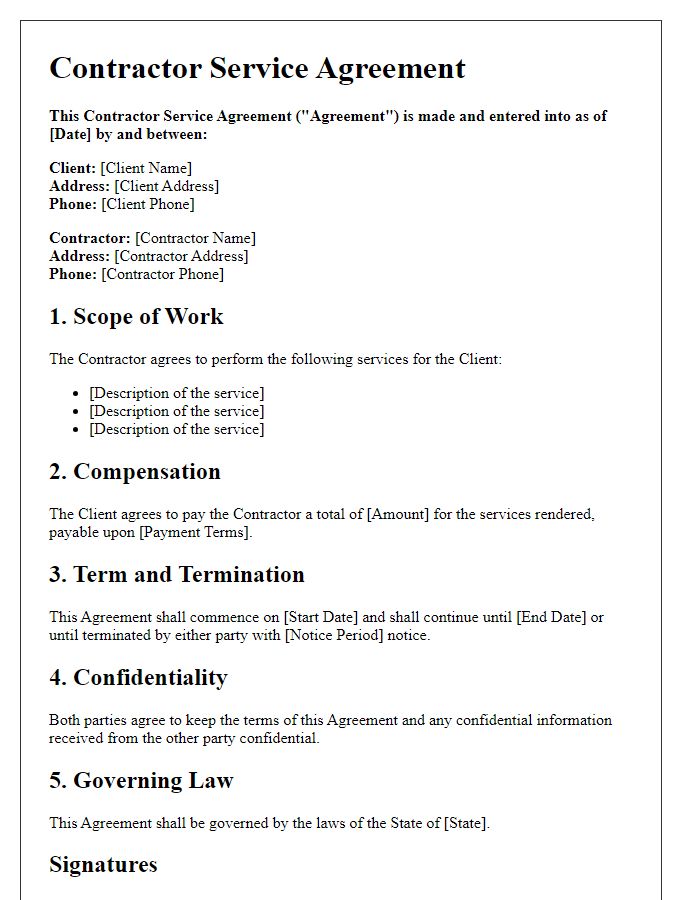
Letter template of contractor service agreement for landscaping services
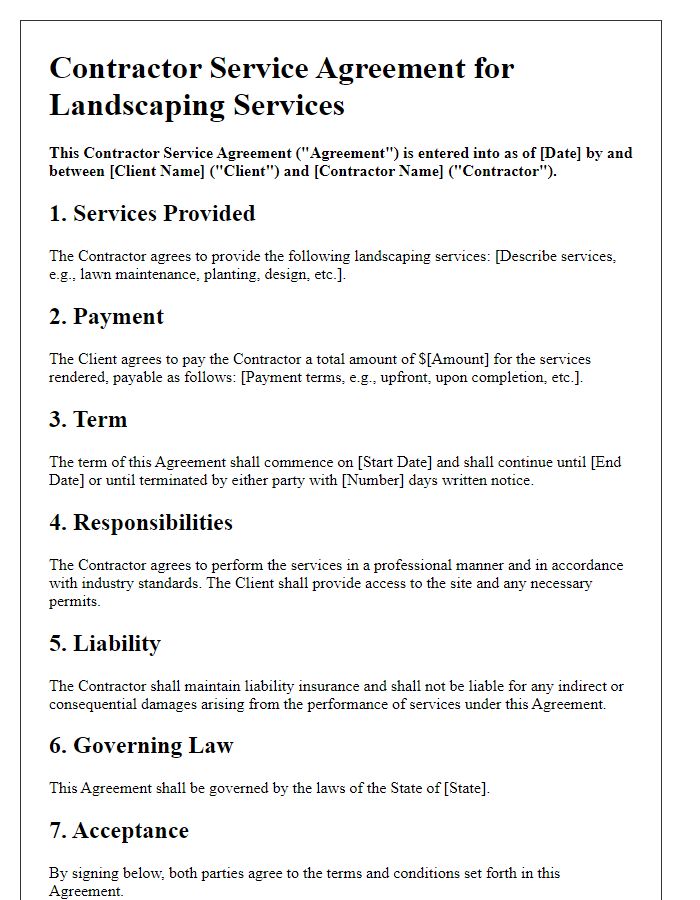
Letter template of contractor service agreement for general handyman services
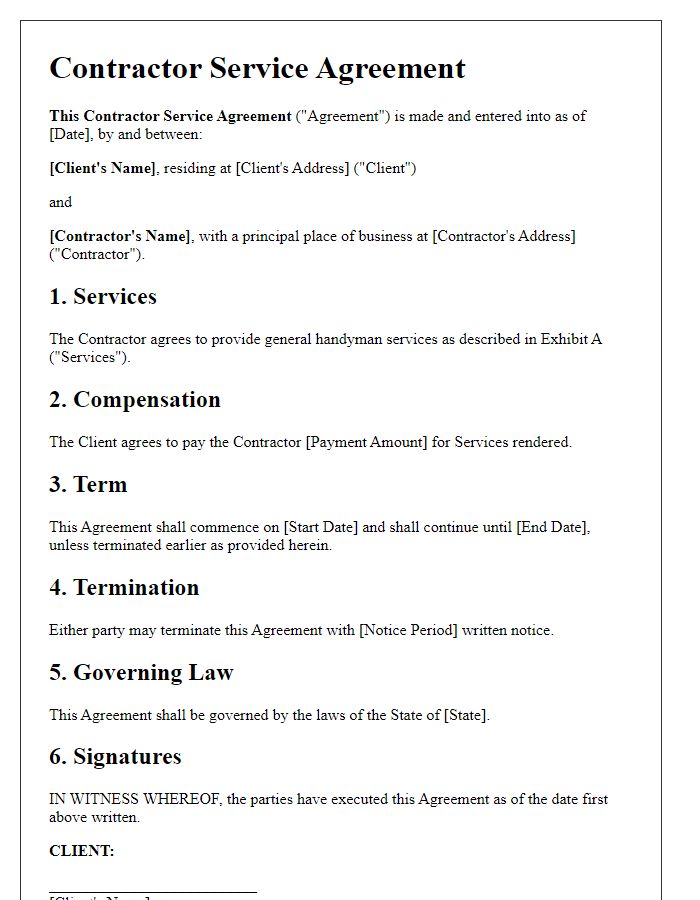

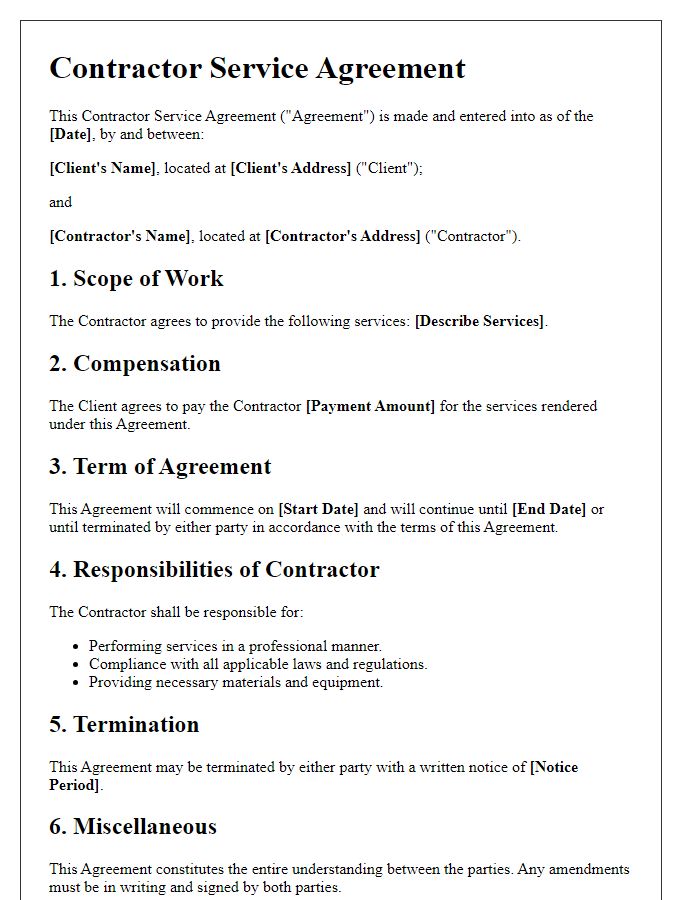
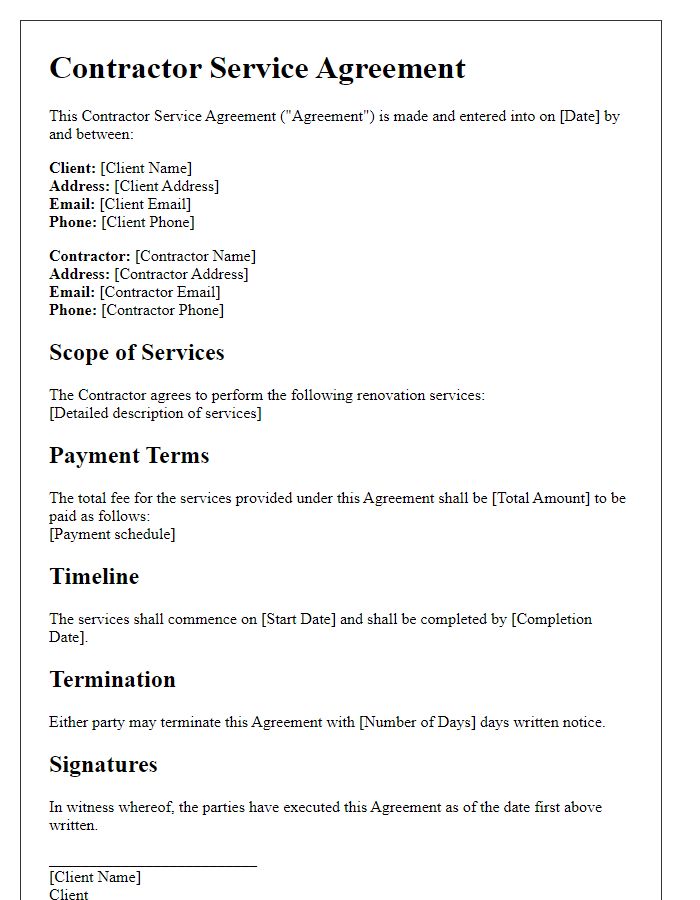
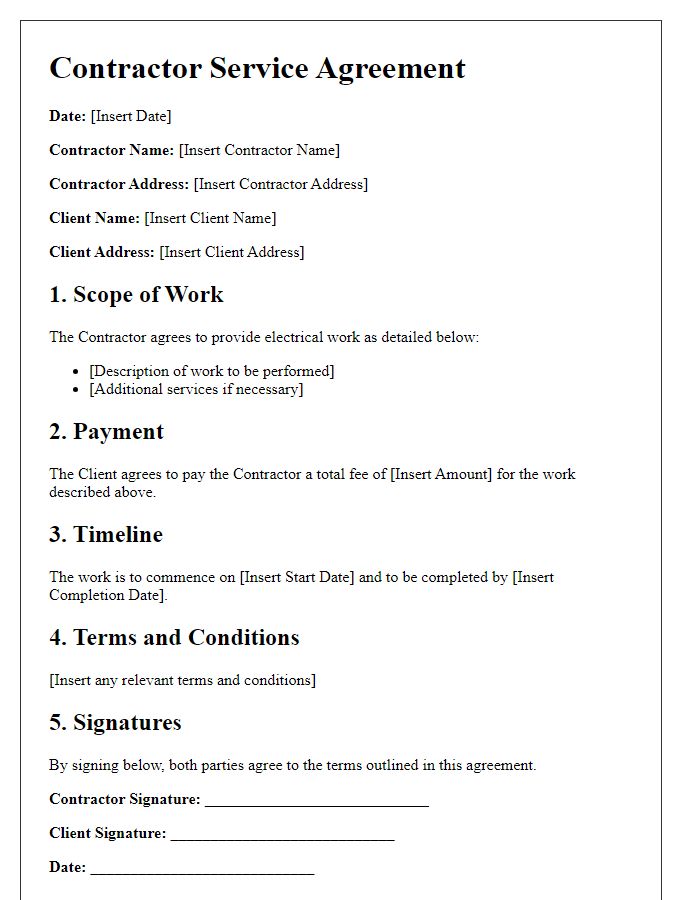
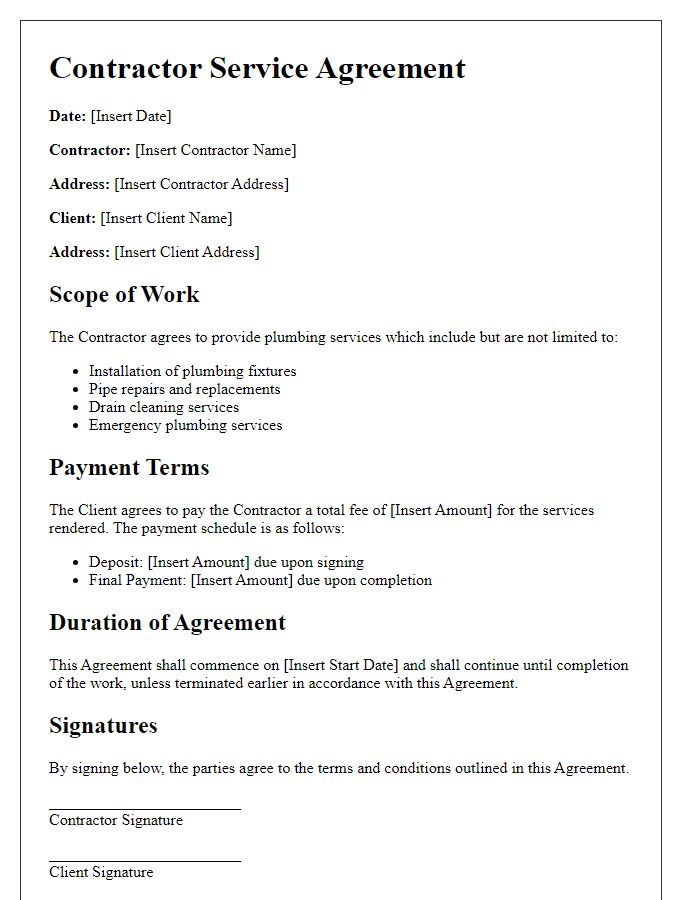
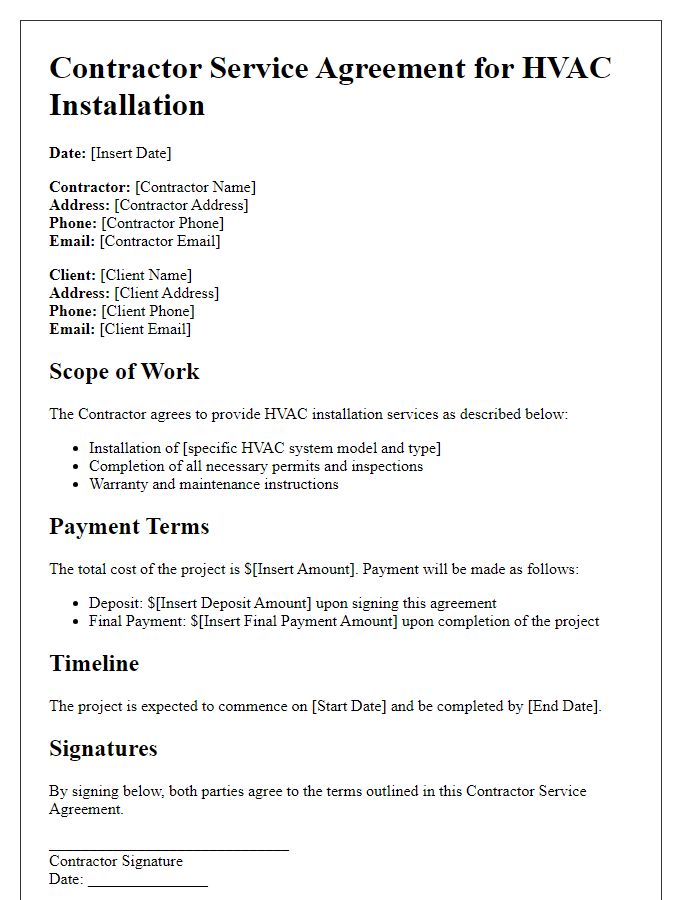
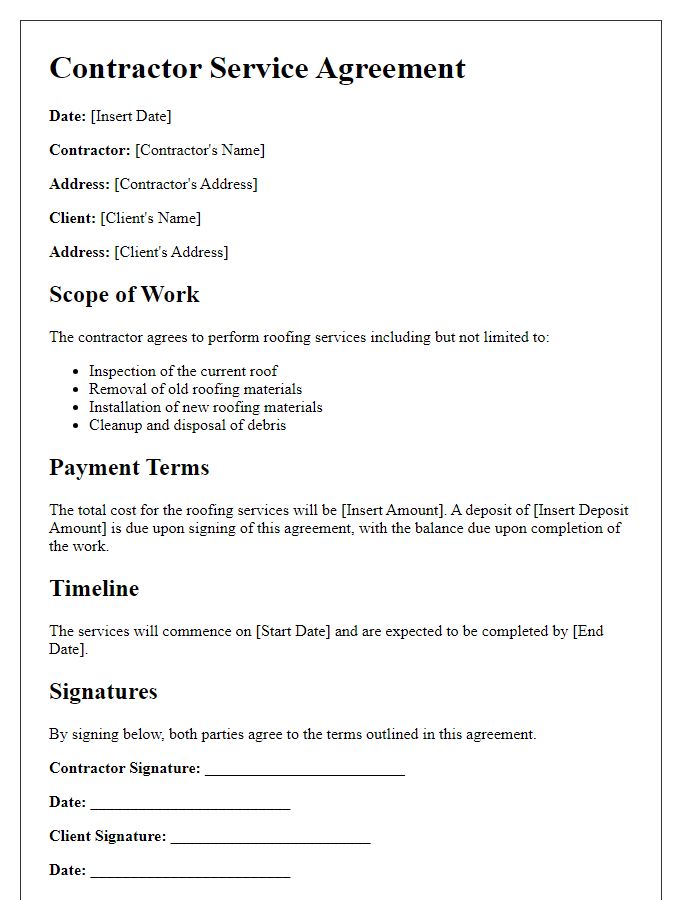
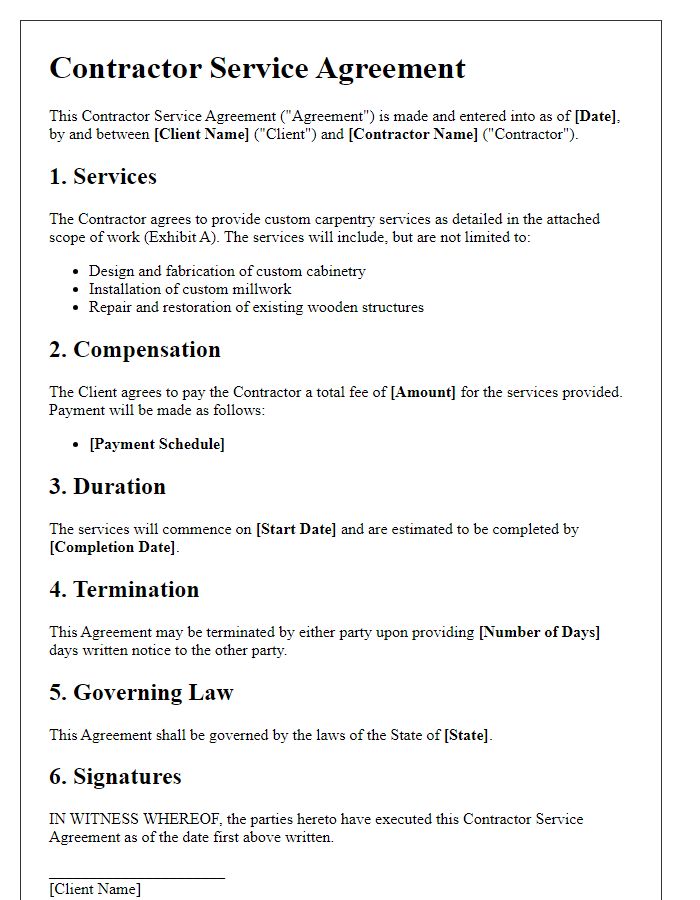


Comments